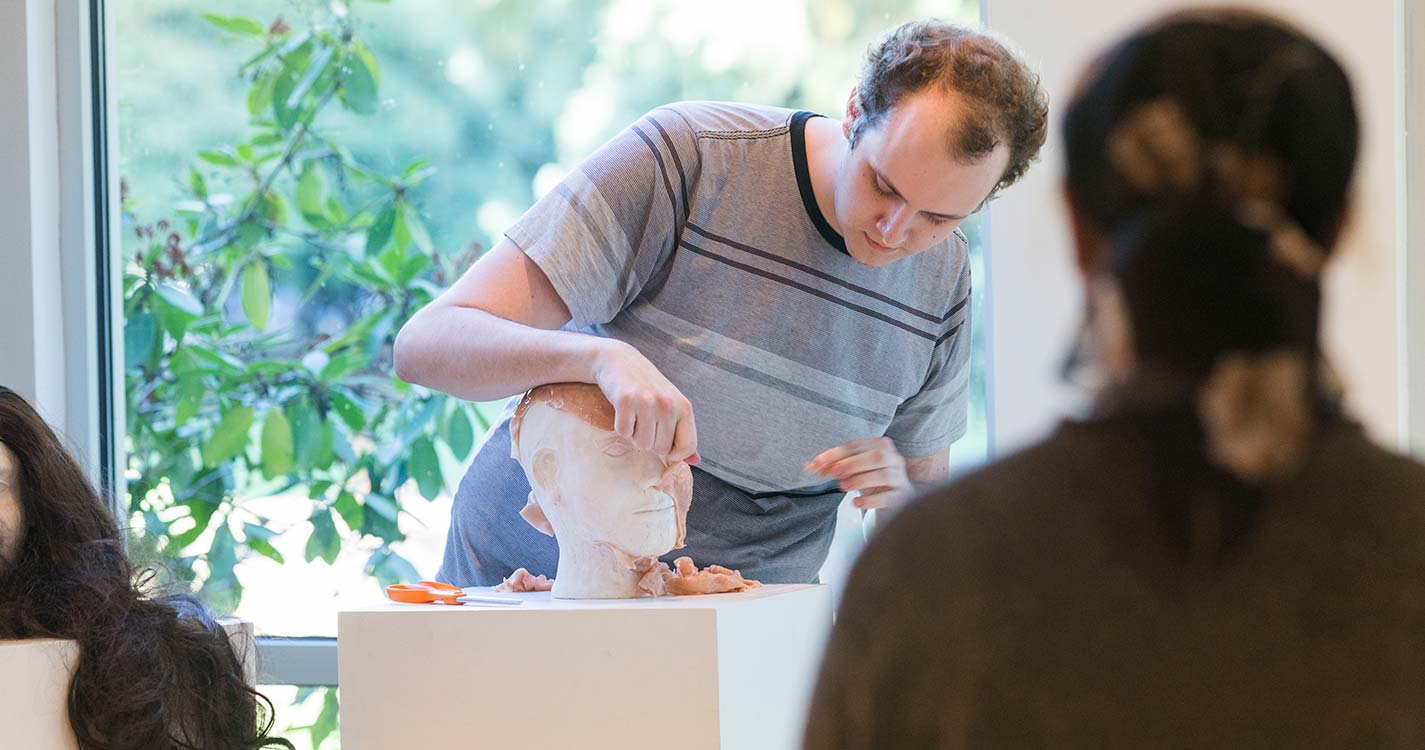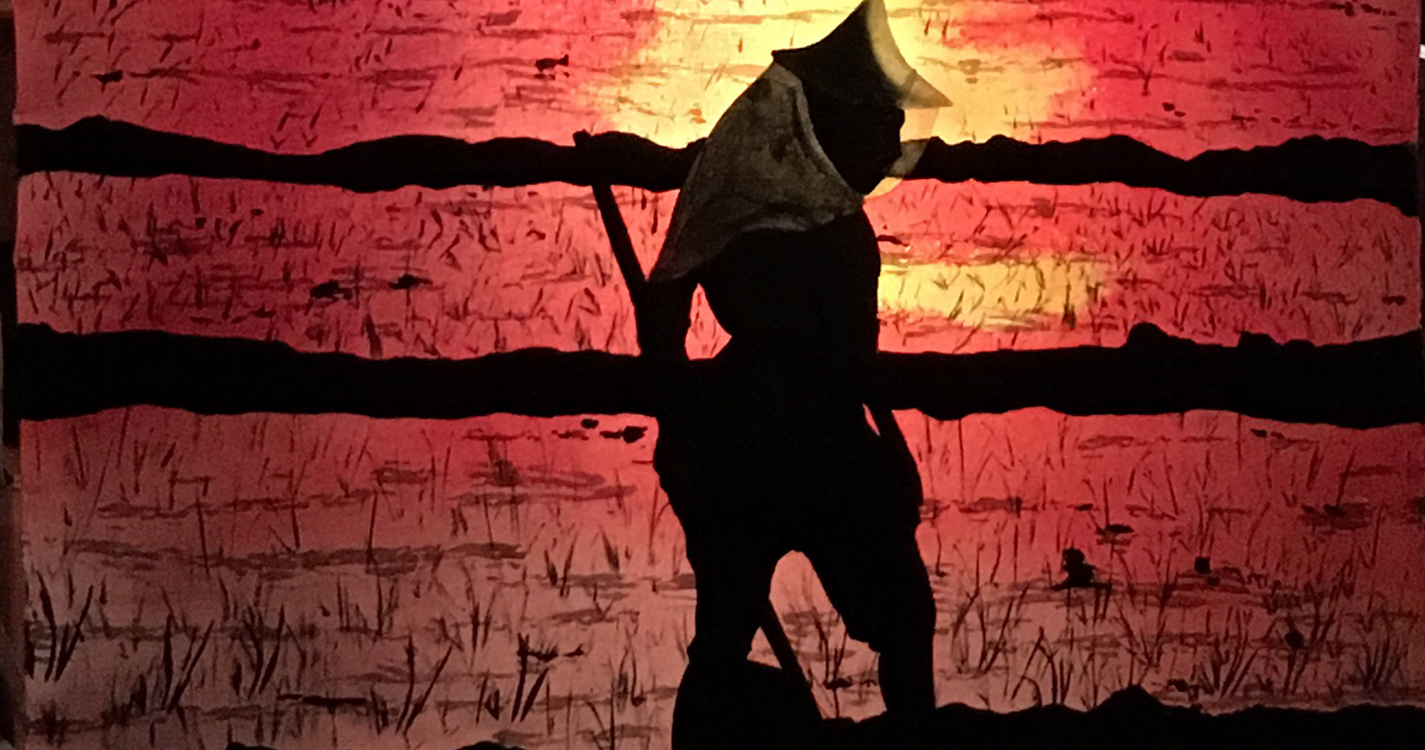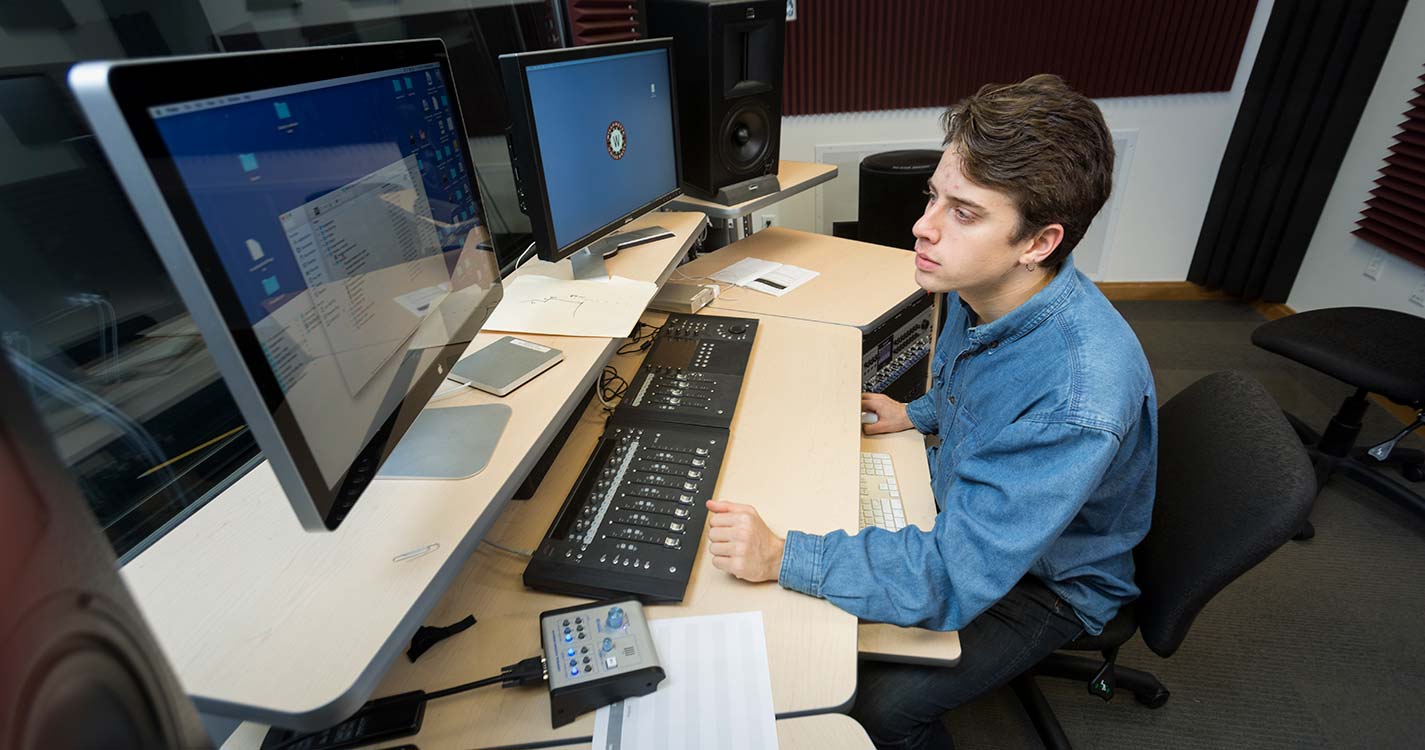Whether transforming an ancient Christian text into music or painting background scenery for a play, some Willamette students recently discovered a new artistic freedom.
Through the Shuchat Arts Fellowship, students receive a $5,500 stipend to further develop their craft through independent work, portfolio building or experiences guided by close faculty mentors. Although the fellows are selected by faculty, the projects are entirely student-driven.
Established with a generous gift from Terry Shuchat ’62, the annual fellowship is awarded to two students each from art, music and theatre.
Grateful for new opportunities
Last summer, the first six Shuchat students spent several weeks working on their projects and developing new skills.
Music major Michael Chergosky ’19 scored a new translation of “The Thunder: Perfect Mind,” an early Christian text discovered in Egypt in 1945. Arranged for voices and instruments, the new translation is what he describes as “a shorter opera without acting.”
“Although I have a background in composition, this was the most ambitious project I have ever done,” he says. “It can be very difficult to get funding for projects in the arts, so I was extraordinarily grateful for the opportunity this fellowship provided.”
Through a solo performance, theatre major Dawn-Hunter Strobel ’20 examined the phrase “the apple doesn’t fall far from the tree,” exploring the development of “self” in relation to family and personal background. Strobel was thankful for the fellowship because it gave her a space “where artists could be artists.”
Strobel says, “For eight weeks, it was my job to walk into an empty room and create something.”
Matt Jensen ’18, a studio art major, explored how societal judgment of physical appearance impacts people — especially those in LGBTQ+ communities — through clay, plaster and silicone sculptures.
Thea Phillips ’19, a studio art major, used food as a medium for seven individual installations, including a zine, photographic triptychs and multimedia sculpture. She says she bought the food exclusively at dollar stores “in order to oppose the fiscally exclusive nature of high art and to embrace the joys of high fructose corn syrup.”
Assistant Professor of Art Cayla Skillin-Brauchle, who mentored Phillips, says Shuchat projects “encourage students to be more independent as thinkers and artists.”
Practical experience
The fellowship also provides students a chance to gain strong practical experience that will help prepare them for graduate school and successful careers in the arts.
Henry Coba ’19, a music major, recorded an album with his band, Percy Lounge, and directed a documentary of the production process.
“This project proved to be a real challenge,” he says. “I have had to grow as a musician, sound engineer, and project manager … This project has inspired me to do research into graduate programs with a focus on sound production.”
Theatre major Anya Steuer ’20 spent three weeks at Cobalt Studios in New York for an intensive scenic painting training program that provided the level of instruction usually found in graduate school. Some days her group would paint for more than 12 hours a day, which she says was actually enjoyable “because you felt such a sense of accomplishment and pride when you finished it.”
After learning dozens of methods for approaching shadows, perspective and faux finishes — her instructors could name 20 different approaches alone to recreate the look and texture of stone — Steuer created eight paintings.
One of her favorite techniques was marbling because she could cover random objects like pieces of velour and cheesecloth fabric in paint and throw them on a backdrop to achieve the look she wanted. Upon her return to Willamette, she helped teach a session of the theatre department’s “Stagecraft 1” class.
Steuer says she appreciated the opportunity “to stimulate my imagination and collaborate and work alongside teachers and students who are interested and intensely focused in the same area of specialization.”
College of Liberal Arts Dean Ruth Feingold says the Shuchat Fellowship provides arts students with important access to faculty mentorship, funding and peer learning communities.
She says, “These kinds of supported, independent projects give students a fantastic opportunity to leap to the next level of professionalism in their work — and help prepare them for their futures after Willamette.”




